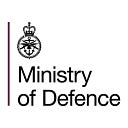British Science Week: A Medic’s Perspective
By Captain Hannan, Physiotherapy Officer, Op TRENTON, South Sudan
As the UK TF Physiotherapy Officer, my role is to assess, treat and rehabilitate musculoskeletal injuries to ensure a return to full fitness. Musculoskeletal injury is the leading cause of medical downgrade in the British Army, therefore ease of access to rehabilitation services is vital, especially in Theatre. Patient presentations can vary significantly from acute injuries sustained on a task to more chronic pre-existing problems. Patients are seen quickly and as regularly as required, ensuring a progressive approach through tailored strength and conditioning exercises and manual therapy. In addition and through close liaison with the patient’s chain of command, alternative roles can be sought that supports their recovery and prevents exacerbation. Ease of physiotherapy access means that task force members can avoid unnecessary removal from valuable engineering roles or even medical evacuation to the UK, thus ensuring that we uphold our overall strength and operational effectiveness.
Working in an environment with limited equipment and where replenishment of supplies may be prolonged, rehabilitation demands more resourcefulness than in the firm base. This involves sharing knowledge through regular teaching and continued professional development, sharing ideas and knowledge to ensure that our patients get the most evidence-based treatment in a timely manner. Internet access is game-changing; evidence in healthcare is constantly changing and we strive to provide the best possible treatment for our patients in keeping with the latest advances in clinical research, regardless of our location in the world.
Due to a three-location split, the physiotherapy role is rather nomadic. This includes a change of location every two weeks meaning a limited time period to treat patients. Though this can be challenging, it allows valuable opportunity to experience the wide variation that the UN mission has to offer. Meeting your international counterparts is a good chance to foster effective communications, share knowledge and ideas, as well as ensuring a good working relationship throughout the medical chain. The UN provides this opportunity like none other; meeting, socialising and even celebrating key events with our Vietnamese, Indian and Ghanaian (and so many more!) counterparts has been a highlight of the tour so far!
